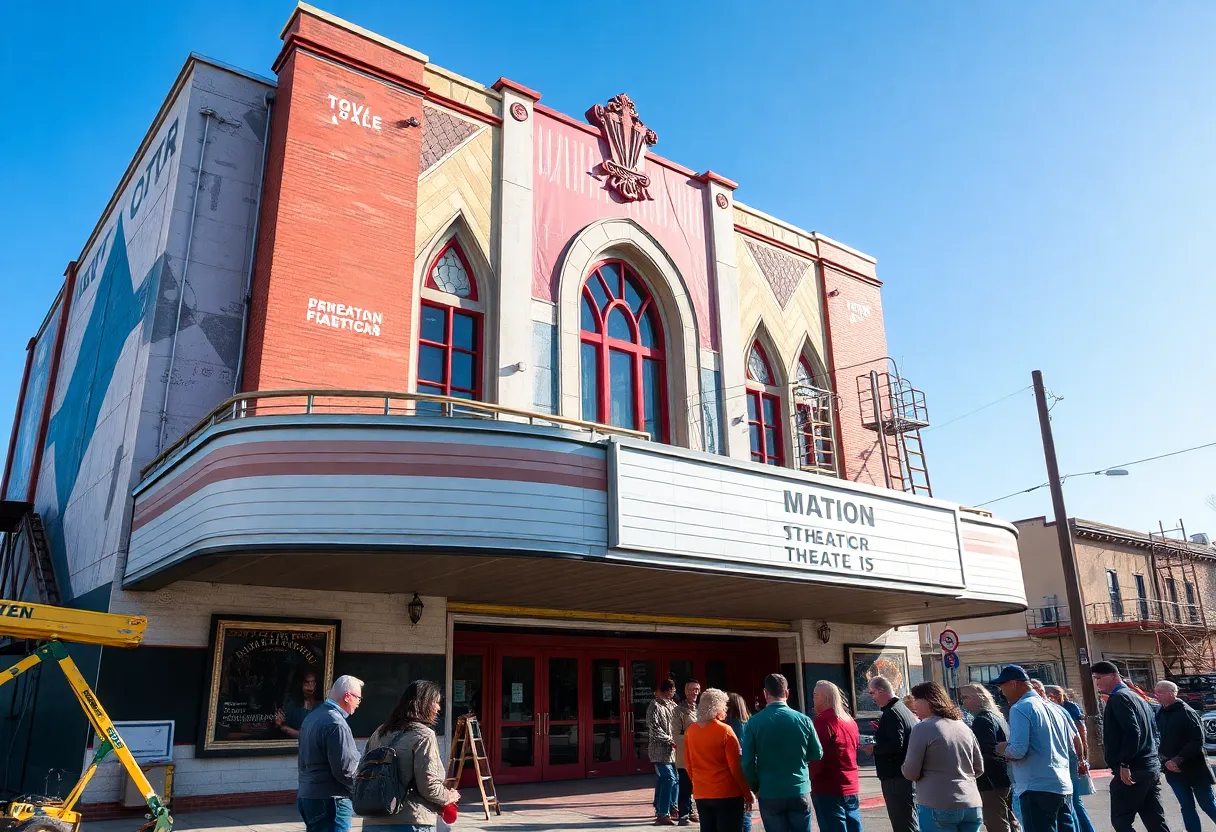News Summary
In a groundbreaking move, Providence, Rhode Island, is converting the historic home ‘Shakespeare’s Head’ into the Center for Reflective History. This initiative, spearheaded by the Civis Foundation, aims to address the city’s connections to slavery and promote awareness of marginalized historical narratives. The property has deep roots, including ties to early newspaper publishing and the lives of enslaved individuals. The center aims to engage the community through storytelling, public programs, and research, ultimately creating a space for reflection on complex historical issues.
Providence Transforms Historic Home into Center for Reflective History
Providence, Rhode Island is set to break new ground in its understanding of local history as a historic home, known as “Shakespeare’s Head,” is transformed into the Center for Reflective History. The 18th-century property, purchased for $750,000 by the Civis Foundation, aims to address and reflect on the city’s often overlooked ties to slavery.
The home, owned by John Carter and Amey since 1772, has deep historical roots. John Carter was not only an apprentice to Benjamin Franklin but also the first publisher of the Providence Gazette, which operated out of the house. The basement of the property housed a printing press, while a corner of it served as the city’s first post office. A carved bust featuring the face of William Shakespeare adorns the exterior of the building, giving the home its notable name.
In the 1930s, documentation referencing “probable slave pits” underneath the home prompted the Providence Preservation Society to intervene, halting the sale of the property. This discovery catalyzed extensive research into the home’s connection to slavery, particularly focusing on the lives of three individuals enslaved at the property: Ingow, her daughter Fanny, and a man named Primus King. Ingow and Fanny were enslaved in the home for nearly two decades before being freed in 1789; however, Fanny remained as an indentured servant until the age of 18.
John Carter’s Complex Relationship with Slavery
John Carter’s relationship with slavery is marked by complexity. Though he is often characterized as an abolitionist, he printed advertisements for the sale of enslaved people in his newspaper, presenting a contradictory aspect of his life. As the demographics of Providence shifted in the 1800s, the structure eventually transformed into a boarding house, accommodating laborers and up to 25 working-class tenants at one time.
Establishment of the Center for Reflective History
The Civis Foundation’s purchase aims to create the Center for Reflective History, which seeks to explore and preserve the socio-historical narratives tied to the site over the centuries. The center plans to use storytelling to work toward restitution, aiming to restore agency to historically marginalized voices. Through this initiative, the center will promote increased awareness and understanding of different lived experiences and their relevance to contemporary society.
The project aligns with national discussions about the importance of acknowledging complex historical narratives, particularly those related to slavery. The Center for Reflective History intends to conduct in-depth research throughout the current year and is planning public programs, including walking tours and discussions, set to launch in 2027. The property will officially be named “Primus House” in honor of one of the enslaved individuals associated with it.
The National Context
This initiative occurs during a period of heightened national discourse around historical revisionism, with particular focus on how American history is portrayed. Recent actions by the Trump administration aimed at promoting what they term “truth” in American history have faced criticism for resisting discussions deemed “revisionist.”
The Providence Preservation Society stresses the importance of not just finding buyers for historic properties, but ensuring that purchasers are committed to responsibly stewarding their complex histories. Under the leadership of Marisa Angell Brown, the society emphasizes the need for awareness surrounding the intricate pasts attached to these sites.
As the Center for Reflective History begins its journey, it strives to engage scholars and artists to create works that illuminate the lives of those tied to this historic building, ensuring that voices from the past resonate within the framework of contemporary discourse.
Deeper Dive: News & Info About This Topic
HERE Resources
John E. Fogarty Foundation to Disburse $313K in Grants
Rhode Island Celebrates 249th Independence Day
Additional Resources
- Providence Journal: Shakespeare’s Head Building for Sale
- Wikipedia: Slavery in the United States
- Brown Daily Herald: University Hall’s Connection to Slavery
- Google Search: Rhode Island slavery history
- Boston Globe: RI Church Confronts History of Slavery
- Encyclopedia Britannica: Slavery
- Uprise RI: Michael J. Simpson
- Google Search: Providence Reflective History
- History.com: Slavery in New England
- Boston Globe: Emmanuel Manno Bernoon & Black History






